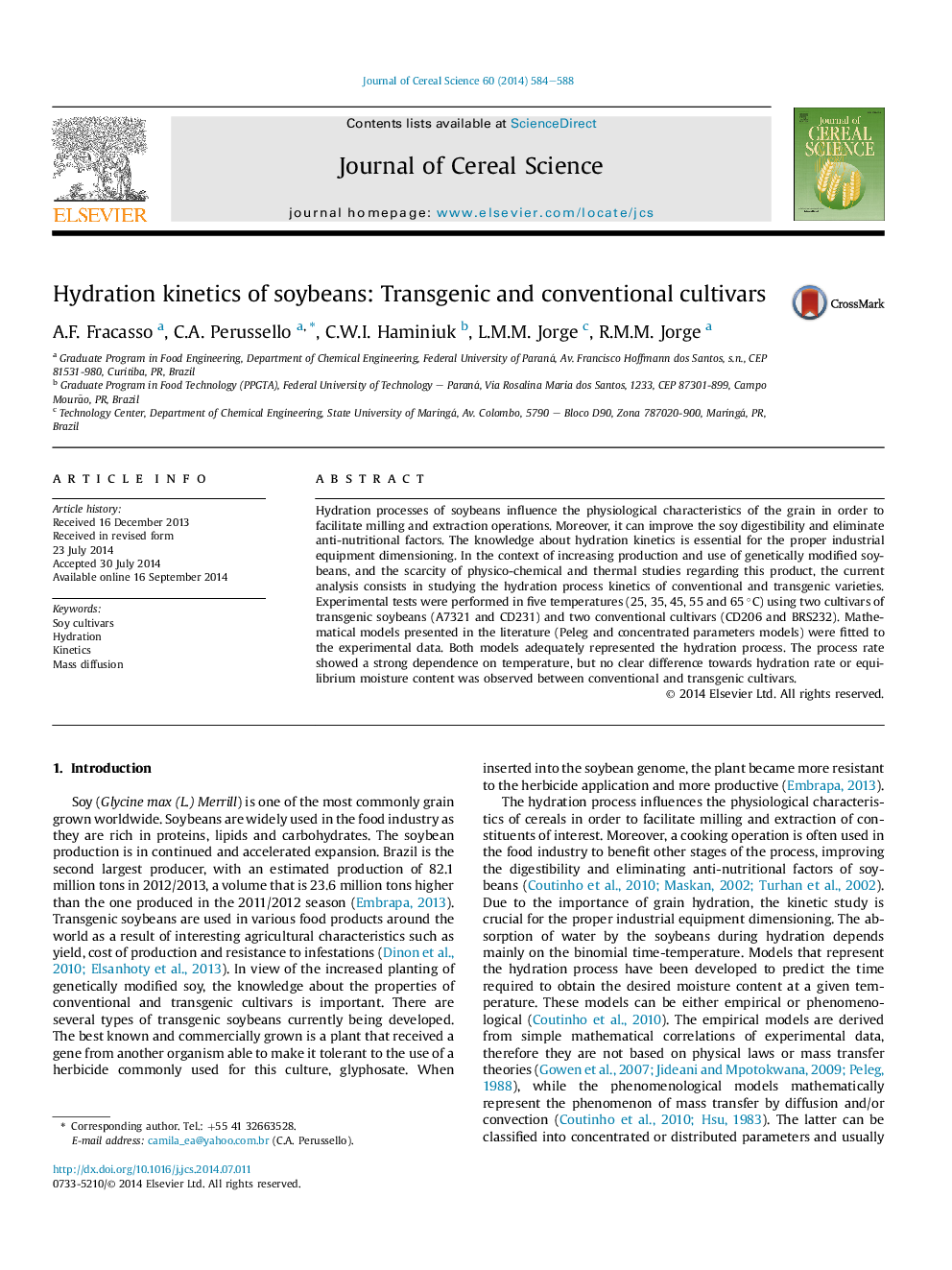| Article ID | Journal | Published Year | Pages | File Type |
|---|---|---|---|---|
| 4515762 | Journal of Cereal Science | 2014 | 5 Pages |
•Conventional and transgenic soybeans were hydrated under different temperatures.•Two mathematical models were fitted to the experimental data.•The models were able to predict the process kinetics.•Temperature affected hydration rate and equilibrium moisture positively.•The differences on hydration rate could not be ascribed to transgenesis.
Hydration processes of soybeans influence the physiological characteristics of the grain in order to facilitate milling and extraction operations. Moreover, it can improve the soy digestibility and eliminate anti-nutritional factors. The knowledge about hydration kinetics is essential for the proper industrial equipment dimensioning. In the context of increasing production and use of genetically modified soybeans, and the scarcity of physico-chemical and thermal studies regarding this product, the current analysis consists in studying the hydration process kinetics of conventional and transgenic varieties. Experimental tests were performed in five temperatures (25, 35, 45, 55 and 65 °C) using two cultivars of transgenic soybeans (A7321 and CD231) and two conventional cultivars (CD206 and BRS232). Mathematical models presented in the literature (Peleg and concentrated parameters models) were fitted to the experimental data. Both models adequately represented the hydration process. The process rate showed a strong dependence on temperature, but no clear difference towards hydration rate or equilibrium moisture content was observed between conventional and transgenic cultivars.
